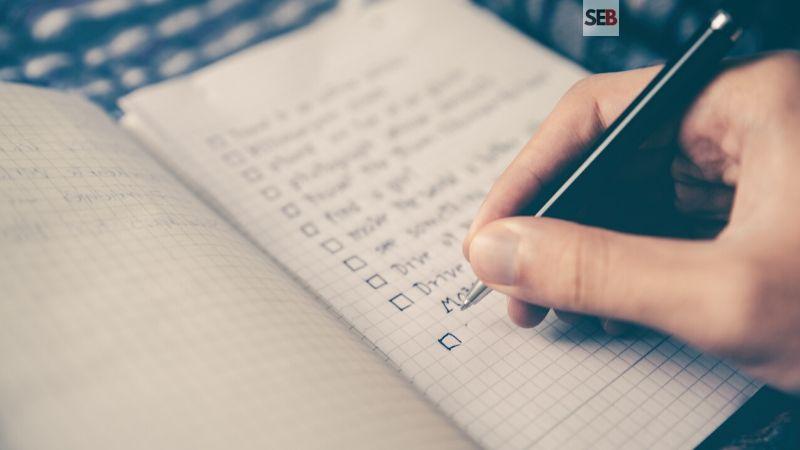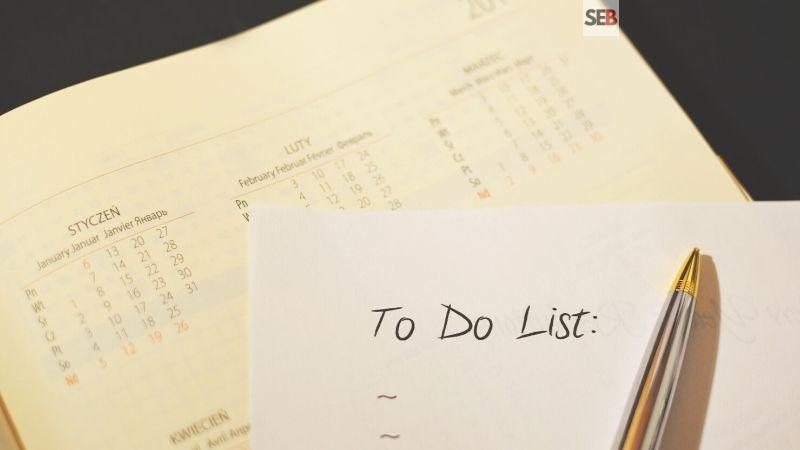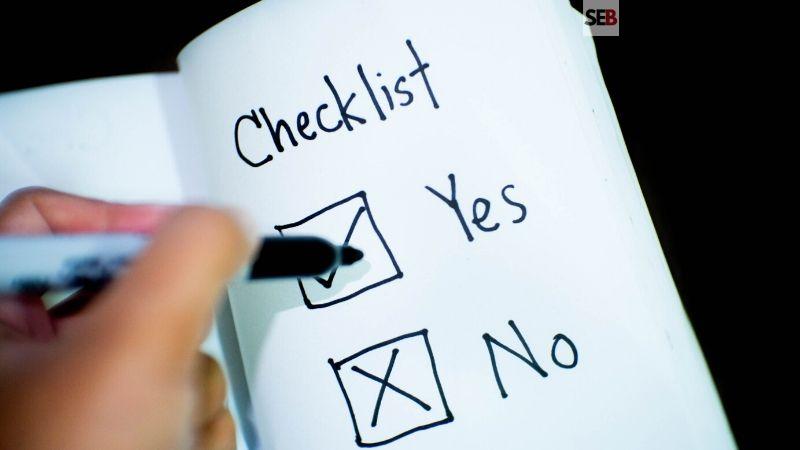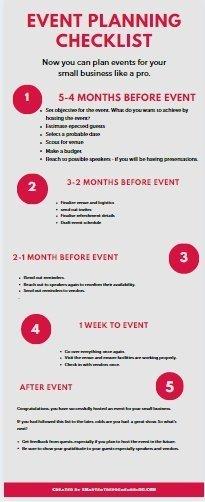Here we’ve created an event planning checklist to help you keep a tab on all the moving parts planning an event entails.
Planning and hosting an event is no mean feat. So many things go into organizing a successful event for your business.
You will have to deal with vendors – you will have to scour for reliable service providers, then negotiate a price with them. You will have to find a suitable venue that’s convenient for guests while also having all the amenities.
Then, there’s the tiny detail of sending out invitations to guests and following up with speakers to confirm their availability. God forbid, for whatever reason, the (speakers) are unavailable and you don’t have any back-up plan.
Want to Grow Your Real Estate Business? Download the Complete Grant & Funding eBook for instant access to grants, guides, and more. 80+ Grant and Scholarship Opportunities (FG, State-by-State, General & Underrepresented Groups Scholarships, Plus Grant Writing Checklist). 900+ Copies Sold Already. Get Your Copy Now
The thing is, things can spiral out of control – so many things can go wrong at the same time, a vendor might decide to turn up late or go AWOL altogether. Or in the thick of things, the proposed venue was incorrectly booked.
So, how can you successfully plan an event for your small business?
You may like this: How to Plan a Successful Year-End Event for Your Business
[Download the event planning checklist as an infographic]
Event Planning Checklist: Stay On Top Of All the Moving Parts While Planning Your Business Event.
The key to managing event planning without completely losing your cool is creating a comprehensive checklist, and strictly following it.

5-4 Months Before Event
Start your planning early to avoid the stress that comes with a rushed event. In this time, you should establish the following;
- Event objectives – what is the event for? Are you hosting for a charitable cause, an award presentation ceremony or an end of year party?
- An estimate of expected guests – Of course, this is a rough estimate and could change over time. But, going by what you have at that moment, how many guests are you looking to have in attendance?
- Select a date – The earlier you pick out your date, the easier it would be for you and attendees to clear up that day and ensure there are no clashing events.
- Scout for a venue – As soon as you have your date, you can easily book a venue. Your time will be marked aside as taken, and you can rest assured that you have a venue for your event. Determine all policies that come with the place you choose: pricing, parking allocations and other details.
- Make a cost estimate – From the number of guests you are looking to invite, you have an idea of how much food and drinks you will need. Other details to put into consideration are room rental, travel costs, equipment fees and insurance policies.
- Create a budget – This is one step that you cannot afford to miss. Without a budget, you will find yourself in a financial mess. The last thing you need is taking a loan to host your event or having debts to pay off after the fact. Based on the costs of the checklist so far, you have an idea of your event cost.
- Confirm with speakers or presenters – If there will be people speaking at your event and making some form of presentation, make sure you talk to them and confirm their availability.
- Contact sponsors – If you wish to have sponsors, now is the time to contact them.
3-2 Months to Event
By now, you have laid out a solid foundation for your event, reducing the margin for error. Your event is starting to seem more like reality than a mere dream on paper.
Now, you can start executing other aspects of your planning that deals with the smaller details.
- Venue and logistics – Finalise all arrangements and logistics having to do with the venue. How is parking? Does the venue offer security? If you require other technological details like Wi-Fi, be sure to make proper enquiries.
- Send out invites – Now that you have a venue, date and time to put on your invites, you can confidently send them out to your expected guests. Don’t forget to add some contact information for enquiries and cancellations.
Your total estimated guests should give you an idea of how many invitation cards to print out. If you wish to save some more money, create some digital cards and send e-vites to your guests.
- Finalise refreshment details – Meet with the catering company that will serve at your event. Are they aware of the date, venue, and time? Booking them well in advance ensures that they do not double-book you with another party on the same day.
If you plan to have a bar service, now is the time to decide what drinks you will be serving, and what kind of service you will have.
- Draft an event schedule – Put together a complete draft of how events will unfold on that day. Schedule in everything from the arrival of guests to the presentation of speeches or awards.
2-1 Month(s) to Event

There are just a couple of months left until your big day. Now is the time to remind everyone of the event you are planning for and build appropriate anticipation.
- Send out reminders – Find ways to remind your attendees of your big event. If they are your employees, you can put up flyers around the office and bring it up at meetings.
If you have invited sponsors or maybe your clients/customers, you could reach out via social media, or e-mails. Tease them with what to expect at your event.
- Reach out to speakers, entertainers, etc. – There cannot be too many reminders here. It could be a simple memo, an e-mail or a phone call to remind them of your event and certify their participation.
1 Week to Event
Your event is a mere week away, but luckily for you, you have cut down on a lot of last-minute chaos by following a well-detailed checklist.
Now, you have to tie up a few loose ends, and your event is well underway.
- Finalise everything – Yes, triple check everything you have planned so far; from your guest list down to the decorators for the event. Make sure everyone has the same schedule.
If any last-minute changes must be made, now is the time to make them.
After Event
Congratulations, you have successfully hosted an event for your small business. The celebrations are over but don’t forget that follow up.
Following up with guest important, especially if you intend to do business with your guests at some point in the future, or if you hope to host a similar event in the again.
The best way to find out how your party went is to ask guests for feedback. You could send follow up thank-you notes via e-mails, and ask them to run through a quick feedback form.
Make sure to show enough appreciation to the people who made your event a major success. Remember that you could not have pulled it off all by yourself. These people include your speakers, event planner (if you had any), and even your decorator.
Event planning can be a downright chaotic process, especially if you are new to the hosting business. You can reduce some of the stress by keeping everything organised and following a strict checklist.
Follow us on Twitter


